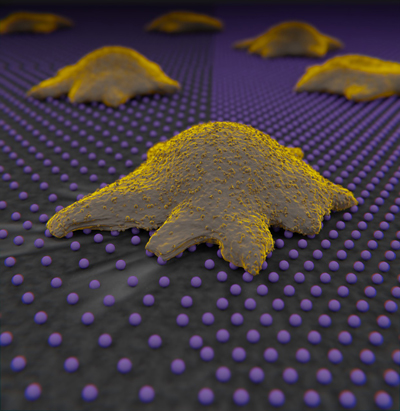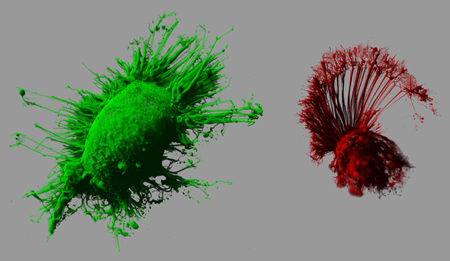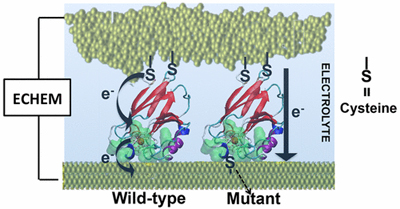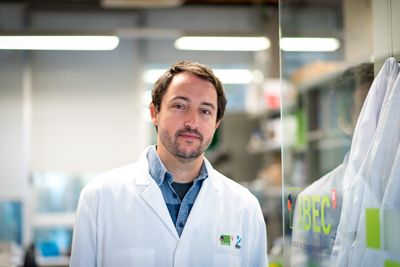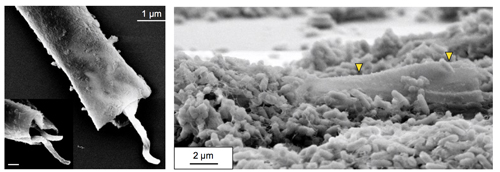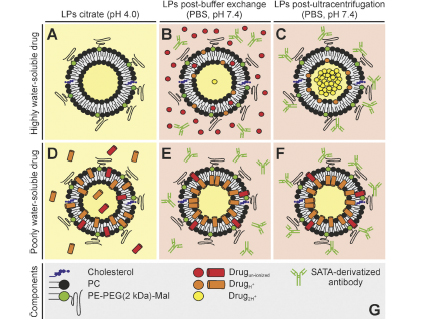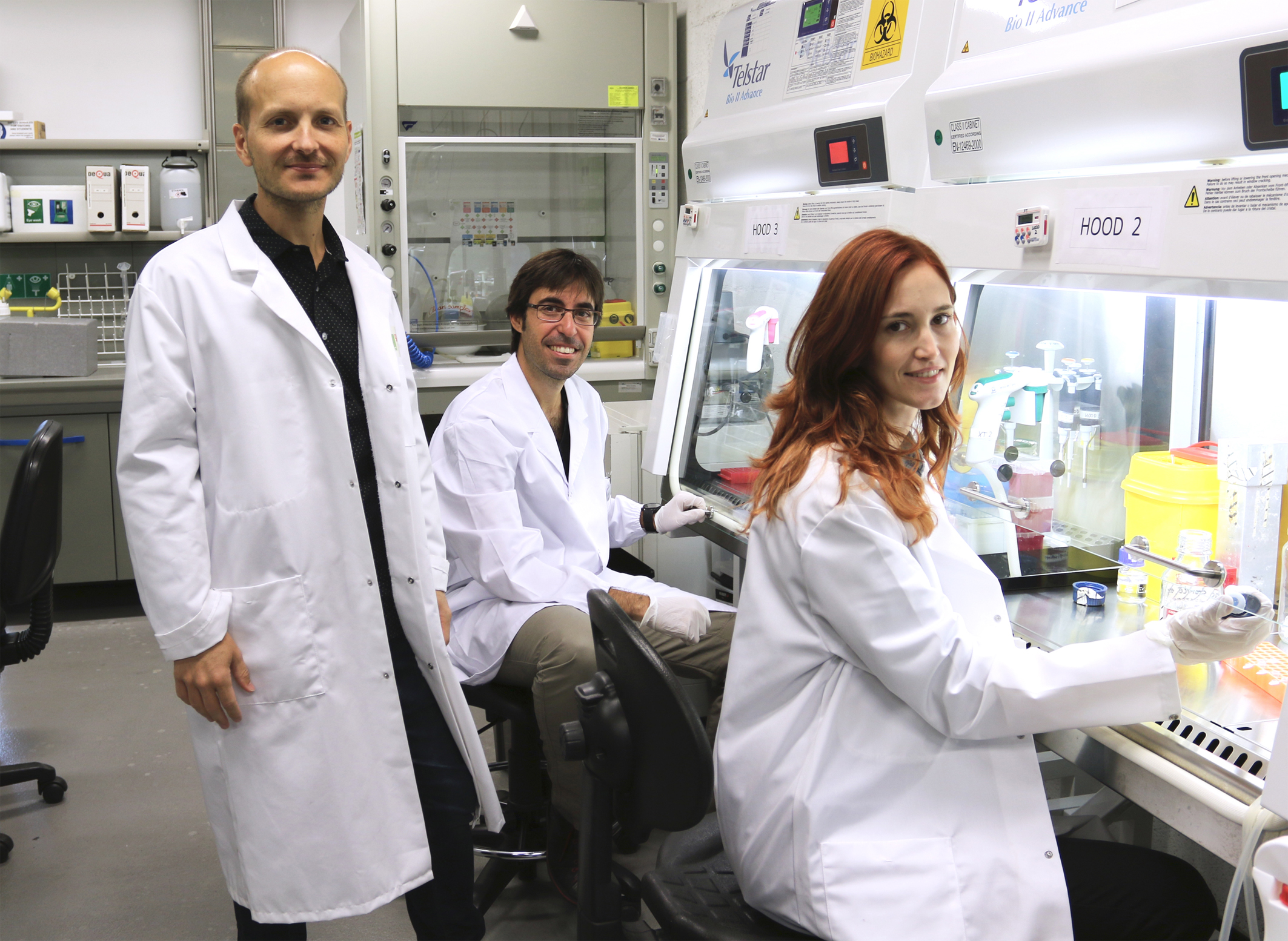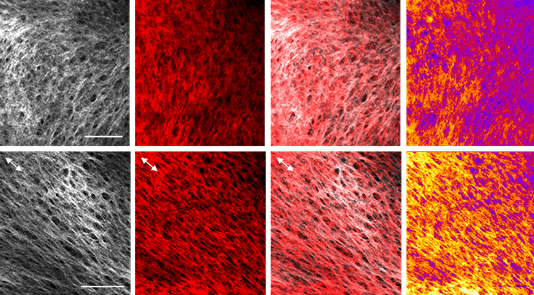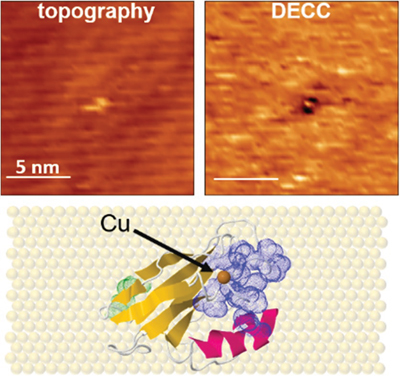Cells feel their environment to explore it
 The way cells find their way around is by ‘groping’ rather than seeing their surroundings: this is the main conclusion of a study published in Nature last week involving several IBEC groups and their collaborators.
The way cells find their way around is by ‘groping’ rather than seeing their surroundings: this is the main conclusion of a study published in Nature last week involving several IBEC groups and their collaborators.
“We determined how cells detect the position of molecules (or ligands) in their environment with nanometric accuracy,” explains Pere Roca-Cusachs, group leader at IBEC and assistant professor at the University of Barcelona, who led the study. “By adhering to the ligands, the cells apply a force they can detect. As this force depends on the spatial distribution of the ligands, this allows the cells to ‘feel’ their surroundings. It’s like recognizing somebody’s face in the dark by touching it with your hand, rather than seeing the person.”

